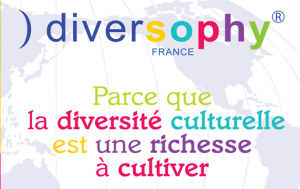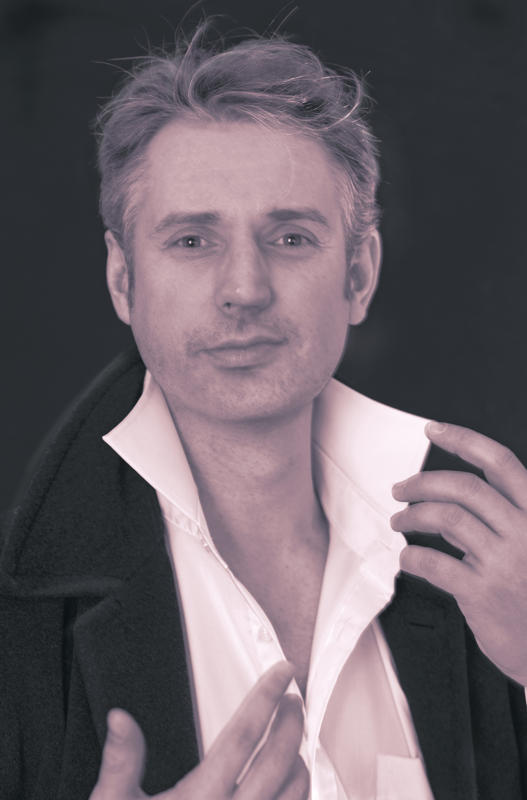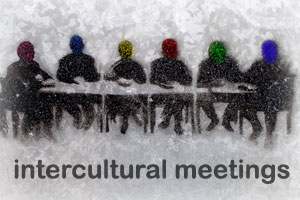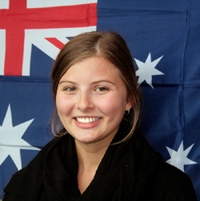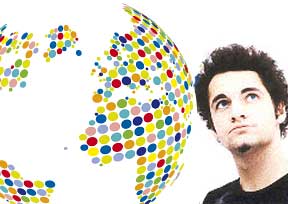 This show is all about the life of students here at RheinAhrCampus in Germany! You will gain an insight into the daily life of Lucy Warren, an exchange student from Australia. She shows us what the life of an exchange student is like and what specific things you can do in Remagen: e.g. editing the international exchange students blog – supervised by Adelheid Korpp. And you will have the chance to get the the latest news of the “National Youth Orchestra of Iraq” and how our students are involved in that project.
This show is all about the life of students here at RheinAhrCampus in Germany! You will gain an insight into the daily life of Lucy Warren, an exchange student from Australia. She shows us what the life of an exchange student is like and what specific things you can do in Remagen: e.g. editing the international exchange students blog – supervised by Adelheid Korpp. And you will have the chance to get the the latest news of the “National Youth Orchestra of Iraq” and how our students are involved in that project.
absolutely daily
The students at RheinAhrCampus know that “intercultural experience abroad” which is documented on their CVs can be a competitive advantage when they are looking for a job. This means they have to leave their intercultural comfort zones and broaden their horizons by studying or working in a different country. It may seem a huge step but it really helps students understand intercultural differences, learn other languages and prepare themselves for their future business lives where they will have to deal with different cultures in different situations. So it seems like a “must have” to go abroad and that is what Lucy Warren, an Australian Student from the University of the Sunshine Coast did. She has spent a whole year away from home at the German partner university doing a combination of studying and internship abroad. Before she left she documented one of her typical days Let us listen to how she starts her day, what helps her clear her mind and which free time activities she indulged in during her stay.
If in our audience there are students who want similar experiences, please feel free to contact us because we like to have international students on campus and we are always looking for interns, too. So go out and internationalize yourselves!
absolutely ambitious part I
The Russian student Nadya Kokareva, who also likes to take risks and jumps in at the deep end, came to our university less than a year ago. She enrolled on one of my courses – International Business Simulations. There we simulated a company called “oRACle” which helped Paul MacAlindin and his “National Youth Orchestra of Iraq” promote their work. Nadya is the president of that company and she will tell us what she experienced during the course, what she learnt from the experience and how this course helped her prepare for her future working life
absolutely blogged
In our next category Adelheid Korpp will tell us, how the exchange students at RheinAhrCampus document their experiences and their daily lives on an exchange students’ blog – so that everyone who is interested in their progress, can follow them online with text and pictures. It is a useful exercise for every exchange student to share their experiences with their friends and families on the world wide web. The students are talking about their travels in Germany and Europe, about their academic experiences at RheinAhrCampus and of course about events they experience during their stays, like for example the famous Karneval in Cologne.
absolutely ambitious part II
Lucy Warren is going to tell us more about her job in the simulated company “oRACle”. While Nadya is the CEO of that simulated company which is helping the “National Youth Orchestra of Iraq” to promote their visit to Bonn this autumn through social media, Lucy is actually the PR manager of that same company. Lucy tells us what her main tasks have been and how this practical experience may be a little different from learning the theory of PR work from a textbook.
Our next show will be coming to you from Anne Fox in Denmark on 19 August
Until then –
Bleiben Sie absolut interkulturell!
The host of this show is: Dr. Laurent Borgmann
Editor: Markus Scherer


